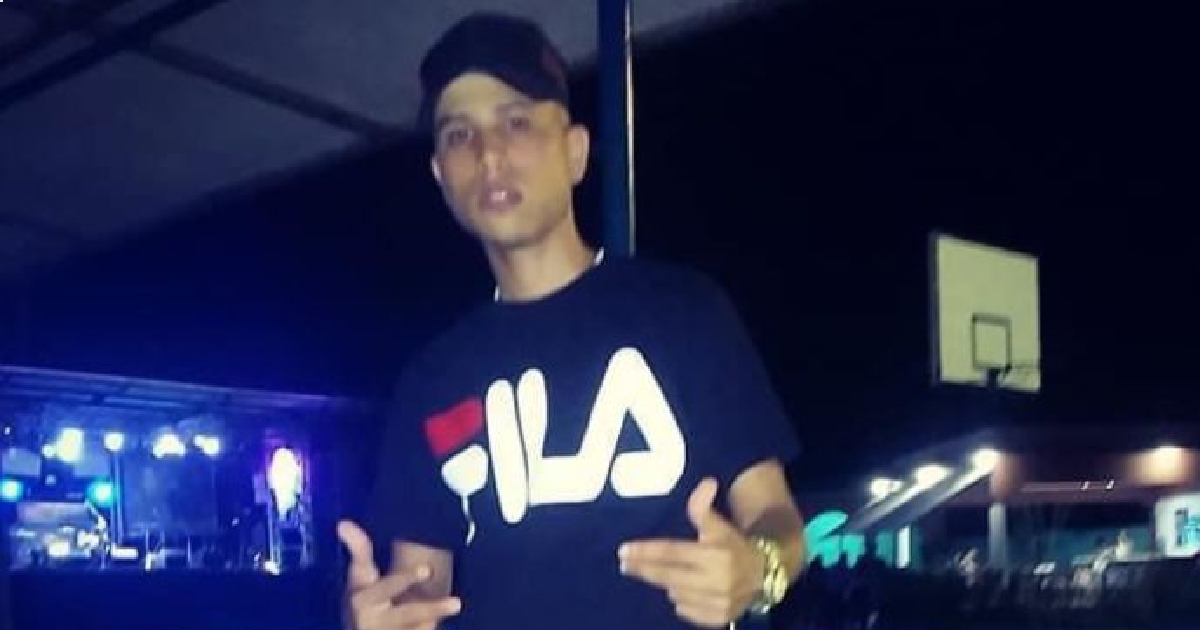
Maydelín Padrón Fernández, the mother of political prisoner Andy Boza Padrón, denounced the torture and humiliation committed against the July 11 protesters who were imprisoned last year.
In statements to the news portal Cubanet, the woman recalled the first days after her son's arrest in San Miguel del Padrón, when he was transferred to the youth prison in the Cotorro municipality known as Ivanov.
There, the detained protesters were brutally beaten for a consecutive week, until one of them had his arm broken and the beatings stopped, he said.
He says that these events were repeated throughout the day and at any time. When they heard the chains roar, everyone piled up, because they knew what was coming at them, he commented.
He said that his son, a 26-year-old young man, was hit so hard with a tonfa that he fainted, and while he came to he felt how they were pulling him by the hair and hitting him while a voice that seemed distant to him He shouted hit it harder, kill him, kill him, if he dies we say it was from Covid-19.
He commented that when the so-called 11J protesters arrived in Ivanov, a tunnel of Special Troops soldiers were waiting for them, who beat them as they passed through them, and this became a routine that they practiced against the prisoners at any time of the day and night.
At noon the they were forced to undress and they stood them in the sun while the soldiers yelled at them that "they would shove their tonfas up their asses," is heard in the audio of the conversation held between the mother and the media outlet.
During that week, until a protester's arm was broken, the prisoners were unable to speak to their families. Only a week later they were able to communicate for one minute under the presence of a soldier and the first visits were authorized after 15 days.
Padrón Fernández remembers that that first time the officers did not let the families hug the prisoners, which she attributes to an attempt so that no one would notice the blows and pain that they suffered due to the beatings.
The families whose prisoners had to be hospitalized after the abuse were informed that they were sick with Covid-19, he noted.
The young man was later taken to the Jóvenes de Occidente prison - the former Manto Negro women's prison - where he was left for around six months; and now he is in the Valle Grande prison.
In the trial, held in the Municipal People's Court of Arroyo Naranjo on August 1 and 2, 2022, Boza Padrón was sentenced to nine years in prison for the crimes of contempt, instigation to commit a crime, attack and public disorder.
He comments that at the time of the anti-government protests that shook Cuba on July 11 of last year, the young man worked as a stevedore at the Turcios Lima mill in Regla, and was the breadwinner of his home.
Since then, she and her daughter have been going through economic difficulties in a context of growing inflation and shortages in the country, reported Cubanet, a medium that has documented dozens of cases of abuse against the so-called 9/11 Protesters.
It recently emerged that the Municipal Popular Court of Arroyo Naranjo ratified the sentences of up to ten years in prison for 14 people who protested in San Miguel del Padrón, including Boza Padrón's sentence of nine years.
The United States Embassy in Cuba said in this regard that "15 months after 9/11, the regime had sentenced 14 protesters to up to 10 years in prison in San Miguel del Padrón for simply insulting politicians" and urged the regime to respect freedom of expression and release them immediately.
Maidelín Padrón, the prisoner's mother, said then that there was a very great disagreement with the rulings, and that the lawyers "were managing for the Appeal to be an oral trial and not in writing like others they have done."
"We are all dissatisfied with the way the process was carried out: as if they were criminals and they are not. Only I was able to enter the trial, the father was not allowed because he was only one person. The family members had to be several people away. blocks from the courthouse until they came to pick us up to attend the trial," he commented.
In early August, the NGO Prisoners Defender reported that 1,251 Cubans have been imprisoned for political reasons from August 1, 2021 to July 31, 2022.
The figure increased drastically after the anti-government protests on July 11 on the island, when 979 people entered the prisons and these joined the list of 272 political prisoners that already existed at the beginning of August last year, for a total of 1,251 detainees, the organization highlighted.
Some have already been released and there are currently 1,002 political prisoners and of conscience imprisoned, "suffering judicial sentences, as well as provisions limiting freedom by the prosecutor's offices, without any judicial supervision, in flagrant violation of international law and due process," noted the organization based in Spain.
What do you think?
SEE COMMENTS (1)Filed in: